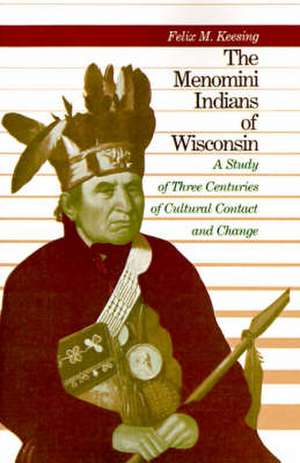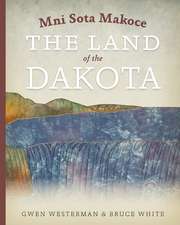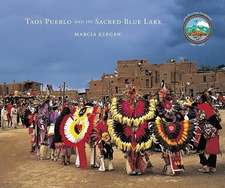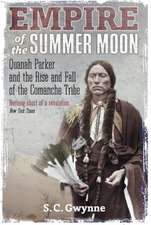The Menomini Indians of Wisconsin: A Study of Three Centuries of Cultural Contact and Change
Autor Felix M. Keesingen Limba Engleză Paperback – 15 feb 1987
Archaeologists identify the Menomini as descendants of the Middle Woodland Indians, who flourished in the area for thousands of years before the first Europeans arrived. According to Menomini legend, their people emerged from the ground near the mouth of the Menominee River. It was along that river that Sieur Jean Nicolet first encountered the Menomini in 1634.
The Menomini, a peaceful people, lived by farming, hunting, fishing, and gathering wild rice. Perhaps because of their peaceful nature their name was not generally found in the white military annals, and they were largely unknown until 1892, when Walter James Hoffman published a detailed ethnographic account of them.
Felix Keesing's classic 1939 work on the Menomini is one of the most detailed, authoritative, and useful accounts of their history and culture. It superseded Hoffman's earlier work because of Keesing's modern methods of research. This work was among the first monographs on an American Indian people to employ a model of acculturation, and it is also an excellent early example of what is now called ethnohistory. It served as a model of anthropological research for decades after its publication.
Keesing's work, reprinted in this new Wisconsin edition, will continue to serve as a comprehensive introduction for the general reader, a book respected by both anthropologists and historians, and by the Menomini themselves. It is still the most important study of Menomini life up until 1939.
The Menomini, a peaceful people, lived by farming, hunting, fishing, and gathering wild rice. Perhaps because of their peaceful nature their name was not generally found in the white military annals, and they were largely unknown until 1892, when Walter James Hoffman published a detailed ethnographic account of them.
Felix Keesing's classic 1939 work on the Menomini is one of the most detailed, authoritative, and useful accounts of their history and culture. It superseded Hoffman's earlier work because of Keesing's modern methods of research. This work was among the first monographs on an American Indian people to employ a model of acculturation, and it is also an excellent early example of what is now called ethnohistory. It served as a model of anthropological research for decades after its publication.
Keesing's work, reprinted in this new Wisconsin edition, will continue to serve as a comprehensive introduction for the general reader, a book respected by both anthropologists and historians, and by the Menomini themselves. It is still the most important study of Menomini life up until 1939.
Preț: 185.17 lei
Nou
Puncte Express: 278
Preț estimativ în valută:
35.44€ • 36.72$ • 29.57£
35.44€ • 36.72$ • 29.57£
Carte tipărită la comandă
Livrare economică 21 martie-04 aprilie
Preluare comenzi: 021 569.72.76
Specificații
ISBN-13: 9780299109745
ISBN-10: 0299109747
Pagini: 280
Dimensiuni: 152 x 229 x 20 mm
Greutate: 0.4 kg
Editura: University of Wisconsin Press
Colecția University of Wisconsin Press
ISBN-10: 0299109747
Pagini: 280
Dimensiuni: 152 x 229 x 20 mm
Greutate: 0.4 kg
Editura: University of Wisconsin Press
Colecția University of Wisconsin Press
Recenzii
“This study of Menomini culture contact and change was—and in substance it remains—a seminal, path-breaking model. . . . one of the first properly ethno-historical studies of any society in the world. . . . other scholars owe large debts to Keesing’s pioneering work.”—James A. Clifton, American Indian Culture and Research Journal
“A good ethnohistorical foundation from which one may proceed to learn more about this very unique people, the Menominee.”—John F. Boatman, American Indian Quarterly
Descriere
Archaeologists identify the Menomini as descendants of the Middle Woodland Indians, who flourished in the area for thousands of years before the first Europeans arrived. According to Menomini legend, their people emerged from the ground near the mouth of the Menominee River. It was along that river that Sieur Jean Nicolet first encountered the Menomini in 1634.
The Menomini, a peaceful people, lived by farming, hunting, fishing, and gathering wild rice. Perhaps because of their peaceful nature their name was not generally found in the white military annals, and they were largely unknown until 1892, when Walter James Hoffman published a detailed ethnographic account of them.
Felix Keesing's classic 1939 work on the Menomini is one of the most detailed, authoritative, and useful accounts of their history and culture. It superseded Hoffman's earlier work because of Keesing's modern methods of research. This work was among the first monographs on an American Indian people to employ a model of acculturation, and it is also an excellent early example of what is now called ethnohistory. It served as a model of anthropological research for decades after its publication.
Keesing's work, reprinted in this new Wisconsin edition, will continue to serve as a comprehensive introduction for the general reader, a book respected by both anthropologists and historians, and by the Menomini themselves. It is still the most important study of Menomini life up until 1939.
The Menomini, a peaceful people, lived by farming, hunting, fishing, and gathering wild rice. Perhaps because of their peaceful nature their name was not generally found in the white military annals, and they were largely unknown until 1892, when Walter James Hoffman published a detailed ethnographic account of them.
Felix Keesing's classic 1939 work on the Menomini is one of the most detailed, authoritative, and useful accounts of their history and culture. It superseded Hoffman's earlier work because of Keesing's modern methods of research. This work was among the first monographs on an American Indian people to employ a model of acculturation, and it is also an excellent early example of what is now called ethnohistory. It served as a model of anthropological research for decades after its publication.
Keesing's work, reprinted in this new Wisconsin edition, will continue to serve as a comprehensive introduction for the general reader, a book respected by both anthropologists and historians, and by the Menomini themselves. It is still the most important study of Menomini life up until 1939.













